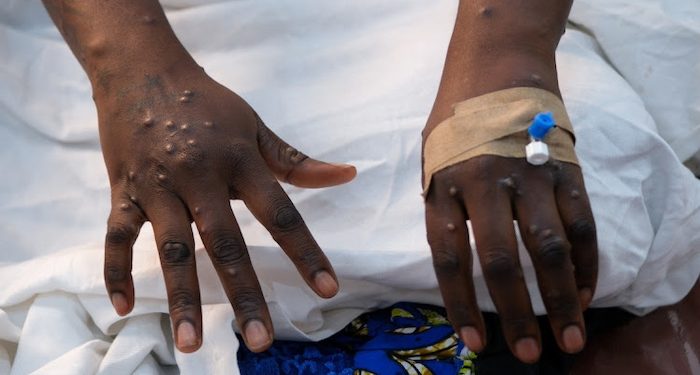adverts
The Ghana Health Service (GHS) has announced a nationwide scale-up of its public awareness campaign following a concerning surge in mpox infections across the country.
The move comes as Ghana confirmed 20 new cases as of July 30, 2025—raising the cumulative case count to 302.
This follows the country’s first recorded mpox-related death on July 22, which was reported alongside 23 new infections, marking a turning point in the GHS’s containment and response strategy.
adverts
Speaking in an interview with Citi News, the Director of Public Health at the GHS, Dr. Franklin Asiedu-Bekoe, disclosed that the Service is partnering with the Ghana Education Service (GES) to roll out enhanced sensitisation efforts, especially in schools and tertiary institutions.
“We are ramping up our educational outreach,” Dr. Asiedu-Bekoe stated. “Initially, we focused on private and secondary schools, but we are now expanding the campaign to cover all educational levels and the general public.”
According to him, new guidelines for mpox prevention and control have been developed jointly by the GHS and GES and will be distributed nationwide.
Dr. Asiedu-Bekoe urged citizens to remain vigilant and report any suspected symptoms—such as fever, rash, swollen lymph nodes, or fatigue—to the nearest health facility.
Despite the GHS’s stepped-up efforts, public criticism is mounting over the government’s broader response to the outbreak. Health experts and lawmakers are raising alarms over what they see as a slow and inadequate approach to public health communication and intervention.
Dr. Kingsley Agyemang, a member of Parliament’s Health Committee, did not mince words in his critique.
“The government’s handling of the mpox situation is very abysmal,” he said. “Let’s not joke with our health, especially when viral conditions are involved.”
He warned that without urgent and far-reaching sensitisation campaigns, many Ghanaians would remain unaware of how to identify symptoms or take preventive action.
“A quick survey will show that many people don’t know what to do if they suspect mpox, and yet cases are escalating,” Dr. Agyemang added.
Health professionals are calling for consistent and easily accessible public education through media outlets, community health volunteers, and local leaders. Recommendations include:
- Public service announcements in multiple local languages
- Educational sessions in churches, mosques, markets, and transport terminals
- Dedicated hotlines for reporting suspected cases
- Distribution of flyers and posters illustrating symptoms and prevention
- Provision of basic protective supplies such as hand sanitisers and face masks
Mpox, formerly known as monkeypox, is a viral zoonotic disease with symptoms that are similar to but milder than smallpox. Transmission can occur through close contact with an infected person or contaminated materials. While the disease is rarely fatal, it can lead to complications in vulnerable populations if left untreated.
The GHS has reiterated its commitment to curbing the spread of the virus, assuring the public that surveillance and case management systems have been activated nationwide. However, experts insist that containment will only be successful if the public is adequately informed and equipped to take preventive action.
Click the link Puretvonline.com | WhatsApp Channel to join the WhatsApp channel
GOT A STORY?
Contact/WhatsApp: +233243201960 or Email: manuelnkansah33@gmail.com


